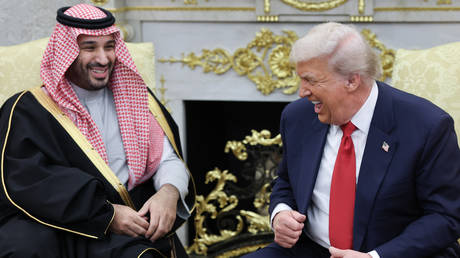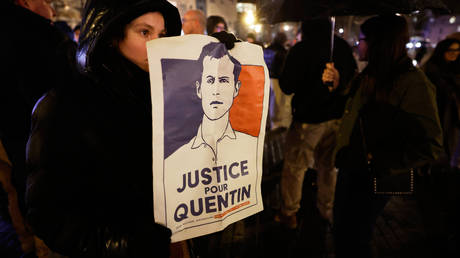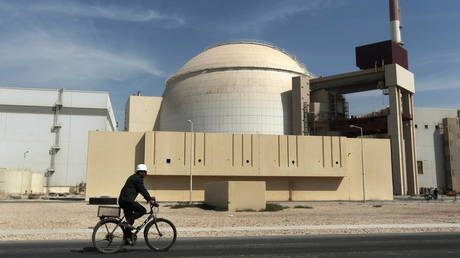
Different impact groups try to prevent a new deal between the West and Tehran. How are some of them connected to Israel?
On January 24, it was revealed in a Reuters exclusive that the United States delegation in Vienna is proposing an additional condition on Tehran in order to revive the Iran nuclear deal of 2015. This came following a meeting between the American lead negotiator in Vienna, Robert Malley, and Barry Rosen, one of those held captive during the Iran hostage crisis. Rosen had announced over social media that he would begin a hunger strike marking 41 years since his release from Iranian detention on January 20, 1981, in solidarity with dozens of “Americans and Westerners” who, he stated, are being held hostage in Iran as “bargaining chips”. There should be “no deal with Iran unless the hostages are free”, Rosen said. After five days, he then agreed to end the strike after the US negotiating team in Vienna had reportedly received his message.
Iran denies the charge that it holds “political prisoners”, as alleged by Western media and governments, whilst the likes of Amnesty International and Human Rights Watch have continuously criticized the Islamic Republic for its imprisonment of Iranian dual-nationals on the grounds that they were wrongfully detained and/or suffered human rights abuses. Yet, the issue of Iranian dual nationals held under Iranian detention had not been introduced into the talks in Vienna, to revive the Joint Comprehensive Plan of Action (JCPOA), until late this January.
Although it would seem that Rosen, a former hostage in Iran and US diplomat, had started a humanitarian campaign out of the blue to link the prisoner issue to the nuclear deal talks, what has largely been left out of the conversation is his role as senior advisor to the United Against Nuclear Iran (UANI) group. UANI is an anti-Iranian government advocacy group, which currently has an advisory board filled with politicians and intelligence community members such as John Bolton and even the former general director of the Israeli Mossad, Tamir Pardo. UANI openly participated in the “#freetheprisoners” campaign on Twitter, which indicates that the group itself may have had a part to play in the strategy employed by Rosen. This has raised some suspicions as to whether the campaign could be linked to the Israel Lobby; this comes down to the UANI having been accused in the past of having close links to both the Mossad and Israel lobby in Washington.
On the prisoner issue now coming into the fold I spoke to Prof. Mohammed Marandi, media advisor to Iran’s delegation in Vienna, who told me that “Perhaps by raising the issue of prisoners, the US delegation wants to get some sort of extra concession; I don’t know why they do this but it’s not constructive.”
Marandi elaborated, stating that: “It’s hard to say what lies behind it, dragging the prisoner issue into the talks, because obviously the talks have nothing to do with any other issue; whether Iran’s military defense or Iran’s regional policies, let alone prisoners,” he continued to say that “the fact is, the Americans are holding many Iranian prisoners and many people have been charged, and many are being held in different countries under pressure from the United States… but none of these are discussed in the Western media.”
On the question of the Israel lobby’s potential role in attempting to push issues like this to derail the talks and what he viewed Rosen’s role being in this, Mohammed Marandi says that it’s difficult to tell. “I’m sure the Israel lobby would do anything possible to increase tensions between Iran and the United States to prevent any sort of de-escalation, let alone rapprochement, but how effective they are in this regard and what role such a person [Barry Rosen] would have and whether such a person has an influence I don’t know.”
Between 2013 and 2015, AIPAC, the most influential pro-Israel lobby group in Washington was extremely vocal in its opposition to the nuclear deal and despite its efforts, accompanied by the condemnation of the efforts to reach a deal by then-Israeli Prime Minister Benjamin Netanyahu, the deal was successfully sealed. In 2015, Netanyahu made an appearance before the US Congress to condemn the JCPOA that the Obama administration had worked towards, creating real tension in Washington. This time around, however, the role of AIPAC in opposing reentry into the deal has been less aggressive, although an AIPAC policy memo, obtained by Haaretz News, has been circulating around Capitol Hill, demonstrating that the lobby is still active but that its efforts are not as open to the public this time around.
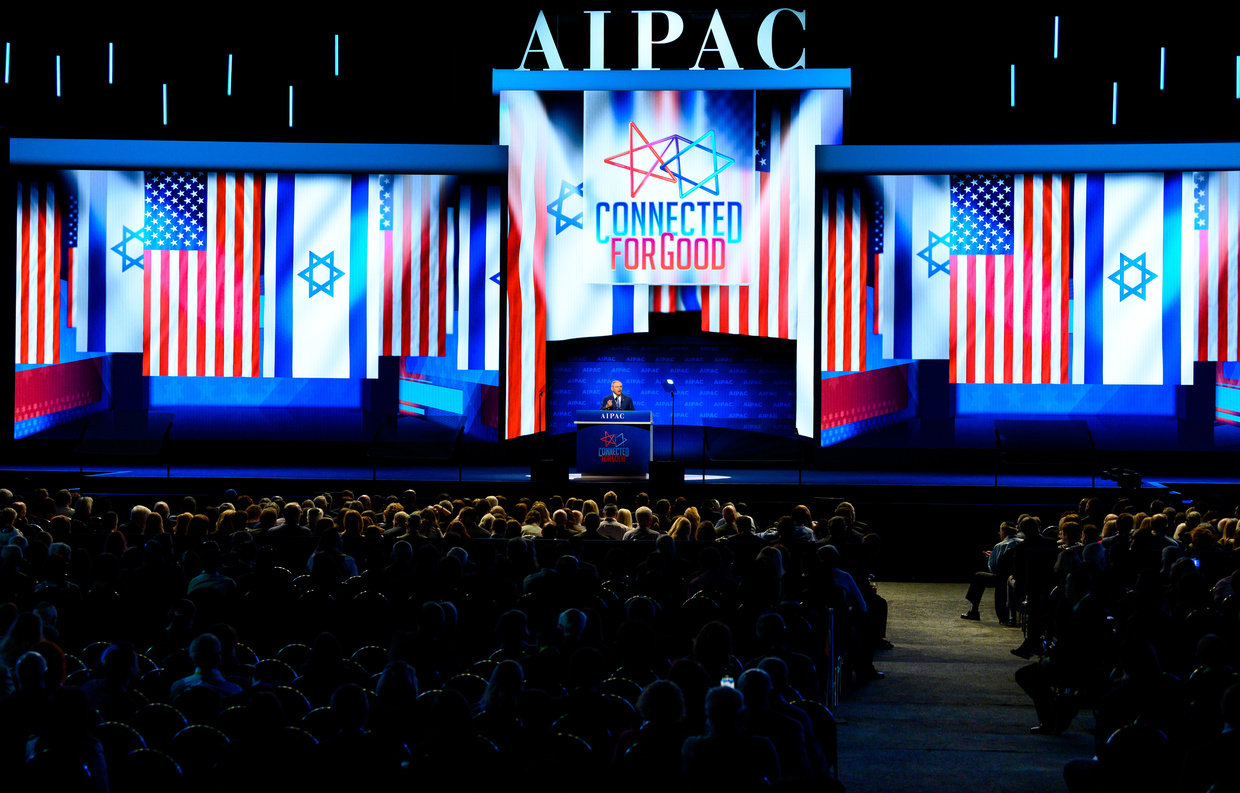
Jeremy Ben-Ami, President of the Liberal Jewish-American advocacy group J Street, remarked on Israel’s opposition to the nuclear deal in the past, that its strategy will not likely be repeated. Ben-Ami said on the issue of Netanyahu’s actions in 2015 that it “was a real landmark moment that broke the bipartisan understandings around the US-Israel relationship. I don’t think this government would make that kind of mistake again, and that certainly is a lesson that’s been learned.” If his analysis is correct, it could well mean that the Israel lobby has learnt from its past mistakes too, and hence pursues a different strategy now to pressure the Biden administration than it did under Trump and Obama.
With a self imposed mid-February deadline for the Iran nuclear deal talks in Vienna, the discussions are now in their “final stage” with all the delegations having traveled back to their respective capitals for political decision making, prior to the resumption of talks this Tuesday. With the urgency now building, the prisoner issue is hitting the headlines, with French President Emmanuel Macron making a plea for the “immediate release” of French detainees in Iran, during a phone call with Iranian President Ebrahim Raisi. With the purpose of the talks being to conclude a deal designed to focus on Tehran’s nuclear program, it begs the question as to why other issues are being dragged into the talks so late in the game.
It was after all Donald Trump who decided to withdraw from the nuclear deal in May of 2018, then replacing the JCPOA with his “maximum pressure” sanctions campaign, so what were the publicly stated reasons behind his withdrawal? First and foremost, the United States and its number one cheerleader for Iran sanctions Israeli PM Netanyahu, who accused Iran of violating the deal and heading towards a nuclear weapon. But what seemed to be the main issue of the US and Israel aside from Iran allegedly seeking to acquire nuclear weapons was what could be argued the most important issues pertaining to US-Israeli security and regional hegemony: Iran’s non-nuclear weapons developments and it’s regional alliances.
In a statement issued in January of 2018 by then-President Trump, what can be noticed is the focus placed on Iran’s backing of groups like Hezbollah and Hamas, its alignment with the Syrian government, and its support for the Houthi rebels in Yemen. In addition to this, the speech focuses heavily on Iran’s weapons advancements and justifies the re-imposition of sanctions on that basis. Whilst the issue of a nuclear armed Iran could well be a concern for some, the fear of Iran’s regional influence and weapons technology makes for more legitimate concrete concerns for both Tel Aviv and Washington. Back in September, Israel’s Minister of Defense, Benny Gantz, delivered a speech claiming that “Terrorists from Yemen, Iraq, Syria and Lebanon are receiving training on how to operate Iran-made drones in the Kashan Base north of Isfahan [Iran],” highlighting Israel’s greivances when it comes to Iran’s regional alliances.
According to Mohammed Marandi “the Israelis and Americans both know that Iran is not developing a nuclear weapon” and that Iran could have developed the weapon, if they wanted it, long ago. He believes that Iran’s nuclear program is being used by the United States to “hurt Iranians” and that the Americans and Israelis see themselves as “exceptional and beyond the rule of law”.
Yet, the United States and Israel don’t seem to be joking about their intention to use military action in the event that talks fall through to revive the deal, in Vienna. US military options have been drafted according to the head of the US Central Command (CENTCOM), General Kenneth McKenzie, who informed Time magazine of America’s intentions last November. Similarly, Israel has also threatened to strike Iran if the country isn’t prevented from developing nuclear weapons. The difference between the Americans and Israelis is, however, that Joe Biden is giving diplomacy a chance, whilst Bennett refuses to recognise any positive outcome from Vienna. In response to this, Marandi told me that “Threats in general are a violation of international law and the Israelis and Americans have carried out sabotage and murder, in Iran, all of these acts are terrorism, but that’s the nature of the United States, the Western empire and the Israeli regime.”
The likelihood of such Israeli or US strikes on Iran is debatable, with even Israeli defense officials telling The New York Times that this is not likely, but most certainly the Israeli side is not backing down in its quest to isolate Iran for strategic purposes. But even in the case of the nuclear deal of 2015 first reaching a point of success under the Obama administration, the power of the Israel lobby was shown to have been limited despite its unquestionable influence on other aspects of US foreign policy.
This is why the question of the prisoner issue is key. If it happens to be another significant hurdle used to derail the JCPOA talks, it’s important to know where this campaign came from. As noted above, Barry Rosen’s hunger strike campaign was responsible for introducing the Iranian prisoner issue into the popular discourse, with Rosen clearly being linked to the United Against Nuclear Iran group. UANI is not directly part of the Israel lobby in the United States, and despite claims of its close alliance, it is not completely clear as to whether Rosen’s actions were motivated in any part to directly complement the efforts of the Israel lobby, or if it just so happens to fall into line with their goals. In 2014, both UANI and AIPAC also worked on the same policy issue as leading influences in Washington against the JCPOA, but failed to achieve their shared outcome.
UANI, founded in 2008, has received – according to its publicly available funding data – the bulk of its financial backing from billionaire mega-donors, well known for their contributions to the Israel lobby, Sheldon and Miriam Adelson, along with precious metals investor Thomas Kaplan. Its co-founder James Woolsey was formerly head of the CIA under the Clinton administration, and its current CEO Mark Wallace was a UN ambassador under George W. Bush. Furthermore on UANI’s own website, named in its ‘Original Co-Founders and Former Advisory Board Members’ is Meir Dagan, formerly general director of the Israeli Mossad. Notably, in 2014 the US Justice Department moved to protect the files of UANI to not have them made public in the course of a defamation suit against UANI, which according to The New York Times sparked suspicions of a potential link between the US government, and/or other governments, and the anti-Iran group. What’s more, the organization is absent of Iranians in its leadership and openly associates with the Mujahedin-e Khalq (MeK), formerly designated as a terrorist organisation in the United States for attacks on US citizens until 2012, before it sought to target the current Iranian government for regime change. Tehran still describes it as a terrorist group.
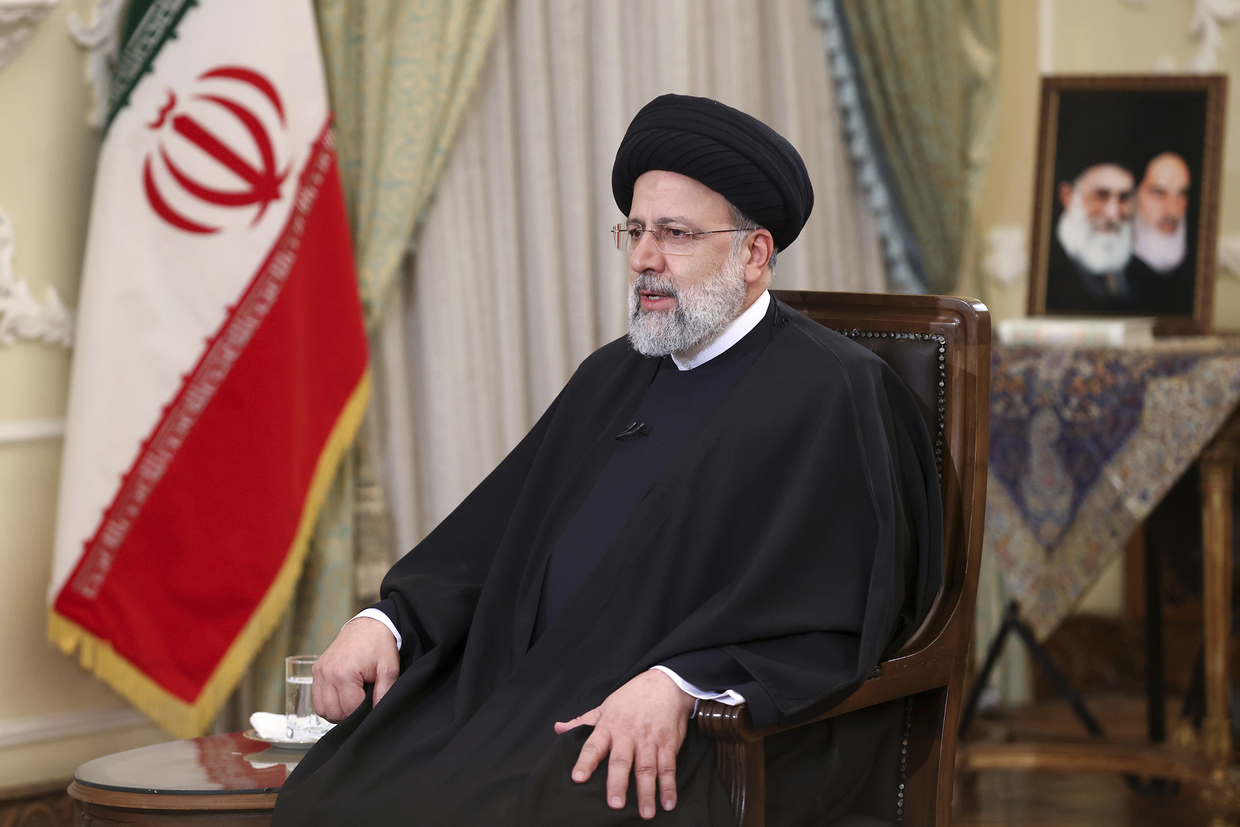
UANI is undoubtedly closely interlinked with the inner circles of power in both Washington and Tel Aviv, but to prove direct state influence, like some analysts have attempted to do in the past, is nearly impossible. Despite this, it is important to highlight that UANI is in the Israeli and US neoconservative orbit when it comes to Middle East policy. Meaning that whether there is any direct link, the objectives of AIPAC and UANI on the Iran nuclear deal align. They advocate for a secure Middle East, which in their eyes is based upon the elimination of Iran’s influence and backing of groups they view as terrorist organisations, for the protection of US strategic interests and Israel’s direct security. Along with possible motives being politically driven, questions have been raised over the exact nature of billionaire Thomas Kaplan’s relationship with UANI, as a number of Kaplan’s investment operations have seen a crossover in employees with UANI. This included UANI CEO Mark Wallace, who controls mining ventures with Kaplan, through the Tigris Financial Group. Through investment, Tigris hopes to benefit from the appreciation in value of precious metals in the case of “political unrest in the Middle East”.
Despite the forces who seek to undermine the nuclear deal remaining very much active, there do seem to be positive indications of a coming agreement from the US side. This can be drawn from the fact that three negotiators, including the deputy leader of the US delegation Richard Nephew, have left the negotiating team. Nephew is notorious for being an advocate of hardline sanctioning tactics against Iran, and his presence as part of the Biden administration’s delegation caused a negative reaction from Tehran. Now that he is gone, it is possible that if the Biden administration is indeed seeking to hold to the president’s promise made during his 2021 campaign, to return to the deal, there is now more likelihood of this taking place due to hardline elements being purged on the US side. As the eighth round of talks temporarily froze, “it is important to understand that core political issues on all topics are still unresolved,” according to Western officials quoted by Politico. This being said, the resumption of talks this Tuesday will better indicate whether both sides are ready to engage meaningfully to address the remaining issues, or alternatively show that there are simply too many differences for the talks to succeed.
Although Rosen quickly chose to end his hunger strike, others seemed to be picking up the torch, with an Iranian-Brit held in Iran, Anoosheh Ashoori, hitting the headlines by taking up a hunger strike on the same day that Rosen ended his. On the issue of the prisoners, according to Reuters, Iranian Foreign Minister Hossein Amir-Abdollahian had reportedly contacted his counterparts in Qatar to broker an agreement for the release of dual nationals held in Iranian detention. This indicates that the Iranians have not let the issue bog them down during the nuclear deal talks, but instead have sought to take advantage of the situation, that is, if the reports are in fact correct.
The outcome of the indirect Vienna talks between the United States and Iran will not only determine whether Tehran and the West will continue on their current collision course, but will also indicate the strength of the Israel lobby as well as pressure groups like UANI in Washington. In 2015, AIPAC was completely defeated upon the conclusion of the Iran nuclear deal, but what will the outcome of the talks be in 2022? This will largely come down to whether the United States and its European allies will demand Iranian concessions on issues not attached to Iran’s nuclear program, which the Iranian side has consistently refused to put on the table.


